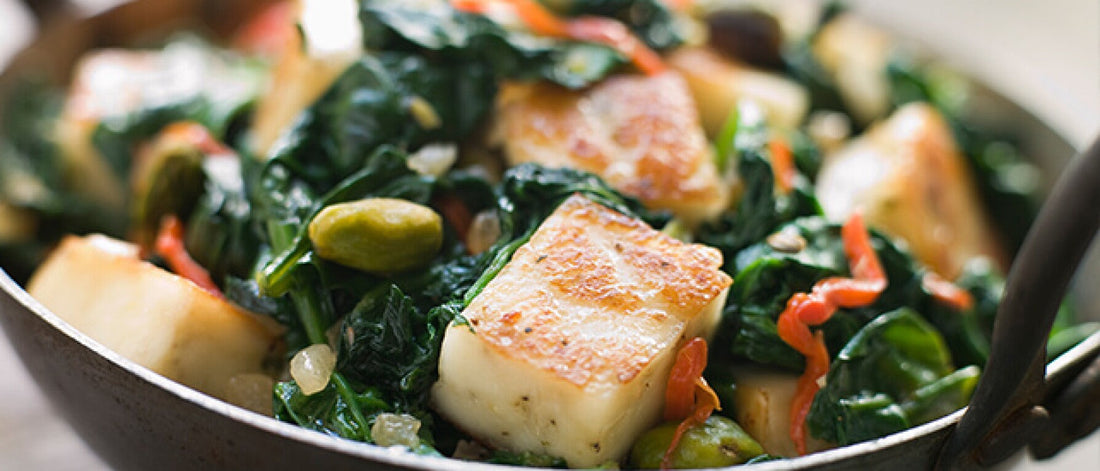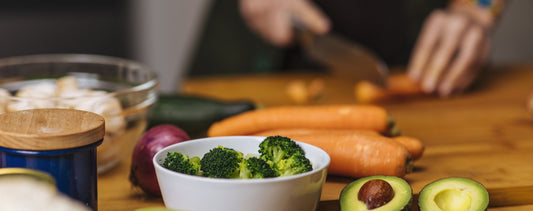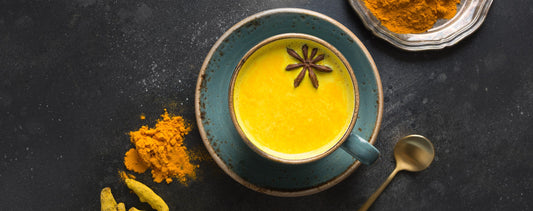Whether you've become a vegan or vegetarian for environmental, animal rights, or health reasons, one of your primary concerns might be how to avoid nutritional deficiencies and find the protein sources needed for a healthy body.
Proteins are composed of chains of smaller structures called amino acids; these are like the building blocks of all biologic molecules.
Of the 21 amino acids needed in our body, humans can produce only 11; the other 10 must come from the food we eat. Amino acids that depend on diet are called essential amino acids, mostly because they are necessary for the body to function properly.
A high-quality or complete protein is one which contains all 10 essential amino acids. An incomplete protein is one that does not have all of the essential amino acids because it lacks one or two. Complementary proteins are two or more incomplete proteins that when eaten together provide all the essential amino acids. For example, rice has nine essential amino acids, but lacks lysine. Chickpeas have also nine of them, but don’t have methionine, so when eaten together they make a great source of a complete protein.
Getting a daily supply of protein is crucial because your body doesn’t store amino acids. Meat, fish, and poultry are the most common and complete sources of high-quality animal-based protein. Eggs and dairy, although they have less protein content than mean, are also a good source of complete protein.
Dairy products like milk, cheese, and yogurt also contain a complete protein. Although it’s significantly lower in saturated fat, the protein content in reduced fat and nonfat milk are comparable to that of whole milk.
Here’s a list of the best plant-based protein sources, great for the vegan diet:
You can find good plant-based protein sources, but be aware of the fact that digestibility, nutrient absorption, and amount of daily intake may vary. As soy intake is still controversial, you may want to be aware of the amount you take on a daily basis. Choosing from a variety of protein sources is always the best option.
Author’s note: Remember that recommended daily amounts of nutrients vary among populations, gender, age, dietary habits, and health status. For your optimal amount of protein intake per day and the amount of protein and nutrients in food, please consult a nutritionist or health care provider.
*Editor’s Note: The information in this article is intended for your educational use only; does not necessarily reflect the opinions of the Chopra Center's Mind-Body Medical Group; and is not a substitute for professional medical advice, diagnosis, or treatment. Always seek the advice of your physician or other qualified health providers with any questions you may have regarding a medical condition and before undertaking any diet, supplement, fitness, or other health program.
The Complete Scoop on Complete Proteins
Proteins, which form up to 20 percent of the human body, control almost all cellular processes in our bodies. They build muscles, repair body tissue, break down food, catalyze chemical reactions, are needed to form hormones and enzymes, and have a crucial role in metabolism and growth.Proteins are composed of chains of smaller structures called amino acids; these are like the building blocks of all biologic molecules.
Of the 21 amino acids needed in our body, humans can produce only 11; the other 10 must come from the food we eat. Amino acids that depend on diet are called essential amino acids, mostly because they are necessary for the body to function properly.
A high-quality or complete protein is one which contains all 10 essential amino acids. An incomplete protein is one that does not have all of the essential amino acids because it lacks one or two. Complementary proteins are two or more incomplete proteins that when eaten together provide all the essential amino acids. For example, rice has nine essential amino acids, but lacks lysine. Chickpeas have also nine of them, but don’t have methionine, so when eaten together they make a great source of a complete protein.
Getting a daily supply of protein is crucial because your body doesn’t store amino acids. Meat, fish, and poultry are the most common and complete sources of high-quality animal-based protein. Eggs and dairy, although they have less protein content than mean, are also a good source of complete protein.
Vegetarian-Friendly Protein Sources
If you choose to become a vegetarian, you can still get protein from eggs and dairy products. Just avoid using eggs as your only source of daily protein. Egg yolks, while packed with protein and nutrients, are high in cholesterol. Be aware of this, especially if your cholesterol levels are high. If you eat only egg whites, you will be limiting the amount of protein by 40 percent.Dairy products like milk, cheese, and yogurt also contain a complete protein. Although it’s significantly lower in saturated fat, the protein content in reduced fat and nonfat milk are comparable to that of whole milk.
Vegan-Friendly Protein Sources
Today, more people choose to have a vegan diet and lifestyle. Finding an excellent source of daily protein is not a problem, and if you’re worried you’re not getting enough, you can visit a nutritionist or health care provider to review your specific nutrition needs. Recommended daily amounts of protein vary depending on age, gender, physical activity, and health status. Plant-based proteins may be digested differently from animal proteins; it's possible you'll need to adjust the amount you eat.Here’s a list of the best plant-based protein sources, great for the vegan diet:
- Veggies: Vegetables contain incomplete proteins, so it’s important to remember to combine them with whole grains to form a complete protein. Legumes like lentils and chickpeas, spinach, Brussels sprouts, and broccoli are among the veggies with higher protein content.
- Nondairy beverages: Nondairy milk provides different amounts of protein, depending on the type. Protein in soymilk is similar in quantity and quality to that provided by dairy milk Almond milk has a very high nutritional value, but has a much lower protein content. Coconut milk is also a great source of protein. Make sure to look out for organic and GMO-free soy and nut milks.
- Hemp: Hemp powder, milk, oil, or seeds can be eaten raw in smoothies or salads. Even though hemp is made from the Cannabis plant, it lacks the psychoactive ingredient, so it's safe to consume. Hemp has a high quality or complete protein content.
- Quinoa: Apart from its high content in antioxidants, carbohydrates, and minerals, this whole grain cereal contains an excellent amount of high-quality protein with all essential amino acids. Other grains may contain good amounts of incomplete protein.
- Tofu: The amount of protein in tofu is comparable to the protein content in meat and milk, and being a derivative of soy, it also has a complete protein content.
- Tempeh: This is also a food made from soybeans; it's less popular, but has three times the amount of protein than tofu, and is a great source of fiber and vitamins.
- Seeds and grains: Some nuts and seeds like almonds, pumpkin seeds, cashews, and pistachios, and grains like oats, wheat and rye, have an adequate amount of protein. Seeds have an adequate amount of a highly digestible incomplete protein, so be sure to combine them with other whole grains or veggies.
You can find good plant-based protein sources, but be aware of the fact that digestibility, nutrient absorption, and amount of daily intake may vary. As soy intake is still controversial, you may want to be aware of the amount you take on a daily basis. Choosing from a variety of protein sources is always the best option.
Author’s note: Remember that recommended daily amounts of nutrients vary among populations, gender, age, dietary habits, and health status. For your optimal amount of protein intake per day and the amount of protein and nutrients in food, please consult a nutritionist or health care provider.
*Editor’s Note: The information in this article is intended for your educational use only; does not necessarily reflect the opinions of the Chopra Center's Mind-Body Medical Group; and is not a substitute for professional medical advice, diagnosis, or treatment. Always seek the advice of your physician or other qualified health providers with any questions you may have regarding a medical condition and before undertaking any diet, supplement, fitness, or other health program.






















